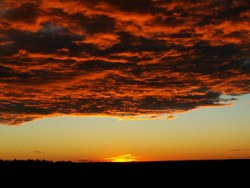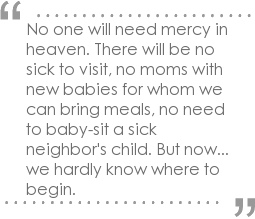
There is a popular notion now among some evangelical scholars that the Hebrews thought heaven was a huge, hard, fixed vault that no one could pierce through. After all, Genesis 1:6 describes the heavens as a “vault” (Heb. raqia). The Septuagint translators used the word stereoma, meaning “something fixed, firmament.”
But what kind of vault did the Hebrews mean? Every Hebrew shepherd watched that fixed vault (or at least everything in it) move every night. They also watched some of its lights move left, but later rightward in the heaven. They likewise noticed that the moon appeared at different spots among the stars as the weeks went by. What else was there to do outside in the dark?
No, of course they did not know that there are nine planets circling our sun, or that the sun is nine light minutes from the earth, or that we reside in the Milky Way galaxy. My guess is that they concluded by observation that the sun moves around the earth. But we should never be taken with the idea that the Hebrews were completely primitive about the sky. 1000 years after Moses, Aristotle explained the heavens as being a spherical vault, inside of which sun, moon and stars moved. The space in between was filled with ether. 2000 years after Aristotle, Einstein described the universe as bounded and filled with ether. Essentially, though refined, the concept of the universe has not changed much from Moses’ day to ours.
The Hebrew word raqia can also take the meaning “expanse” (the primary meaning, according to BDB). And that is precisely how the rest of the Old Testament describes the heavens. In 16 places the Bible says that God “stretched out” the heavens (Heb. natah), now measured at 13-14 billion light years across. To make the point more clear, the OT says that God stretched out the heavens “like a curtain” (Is. 40:22), or “like a tent” (Ps. 104:2). So much for the cast iron dome of the theologians.


 Written for The Body Builder, the church newsletter of
Written for The Body Builder, the church newsletter of 
Discussion